LIFE-MICACC project
LIFE16 CCA/HU/000115
"Municipalities as integrators and coordinators
in adaptation to climate change"
LIFE-MICACC project
LIFE16 CCA/HU/000115
"Municipalities as integrators and coordinators
in adaptation to climate change"
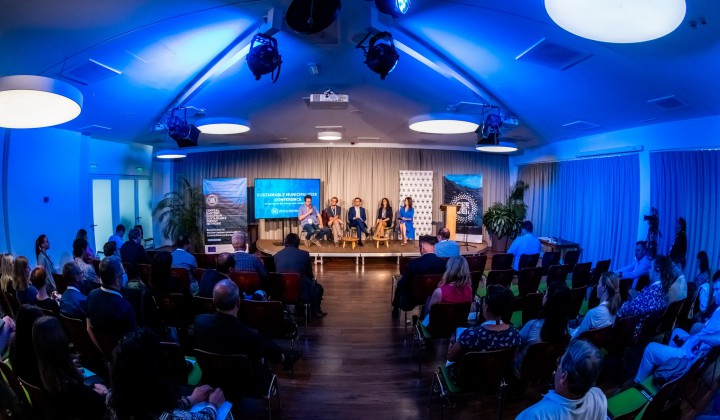
A two-day international conference entitled "Sustainable Municipalities Conference" began on 6 September 2023, organized by the CEESEN network and WWF Hungary Foundation, where LIFE-MICACC and LIFE LOGOS 4 WATERS projects were presented.
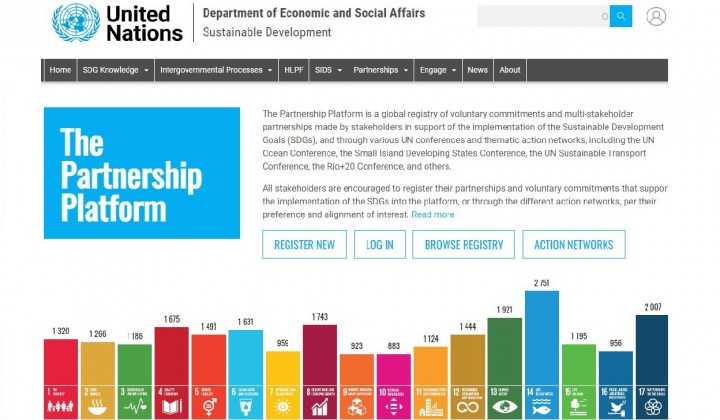
The LIFE LOGOS 4 WATERS project and the previous LIFE-MICACC project have been added to the online platform created by the United Nations, Department of Economic and Social Affairs.
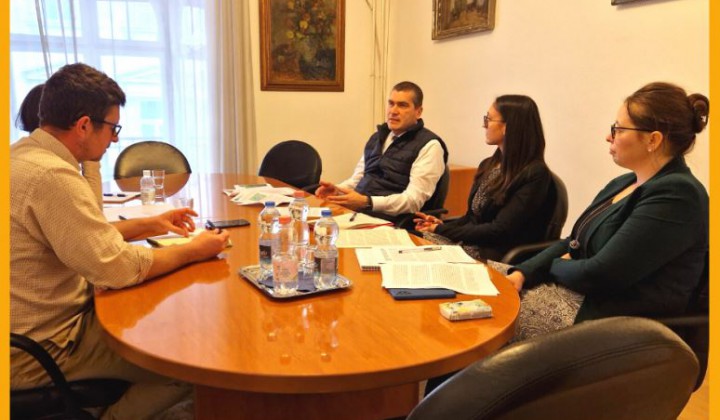
The Hungarian NetworkNature NBS BURST/TeAM Hub sat down for an interview with Dr. Miklós Dukai, State Secretary for Municipalities of the Ministry of Interior, Ms Zsuzsanna Hercig and Dr. Petra Szatzker, project managers of two major projects in the topic: LIFE-MICACC and LIFE LOGOS 4 WATERS to discuss what makes the successful integration of nature-based water retention measures in operational programmes.
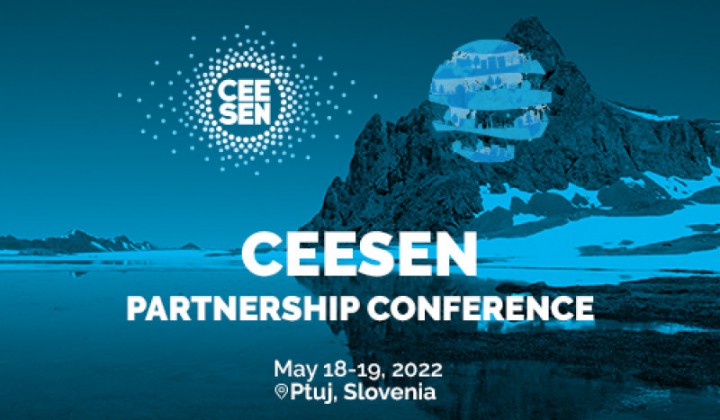
Organized by WWF Hungary, the CEESEN Partnership Conference will take place on 18-19 May 2022, focusing on the preparation and implementation of municipal energy and climate.
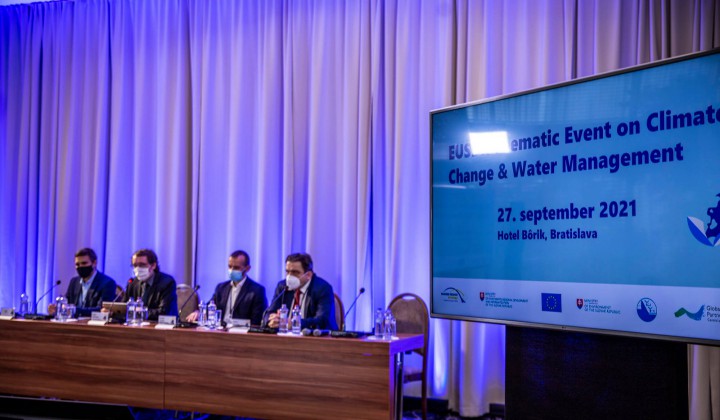
On 27th September 2021, the EUSDR Slovak Presidency in cooperation with the Water Research Institute organised a Thematic Conference on climate change adaptation challenges and opportunities in water management, where Matyas V. Farkas presented the LIFE-MICACC project.
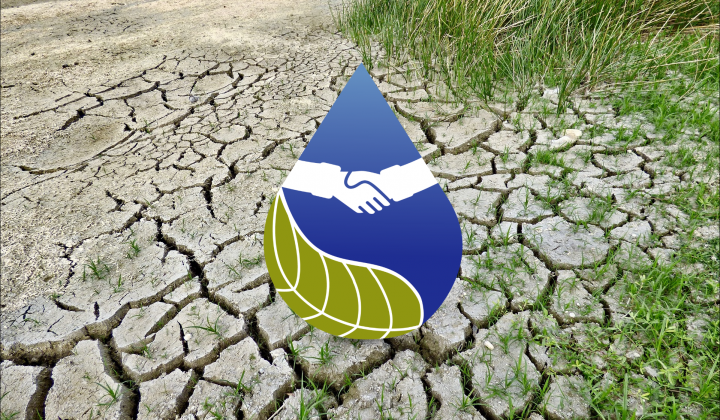
The LIFE-MICACC project team will organise an international online conference in English entitled "Local climate change adaptation and water retention opportunities through the LIFE-MICACC project’s experiences" on the 28th October 2021 from 10:00 a.m.
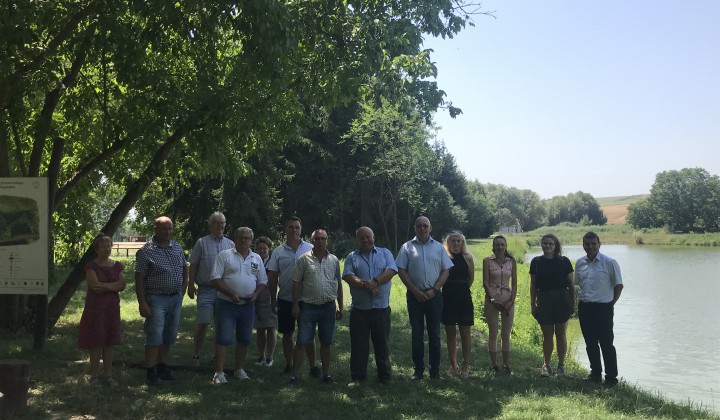
Between 21 June 2021 and 3 August 2021 field visits to the five pilot sites (Bátya, Püspökszilágy, Ruzsa, Rákócziújfalu, Tiszatarján) were organised to demonstrate natural water retention solutions.
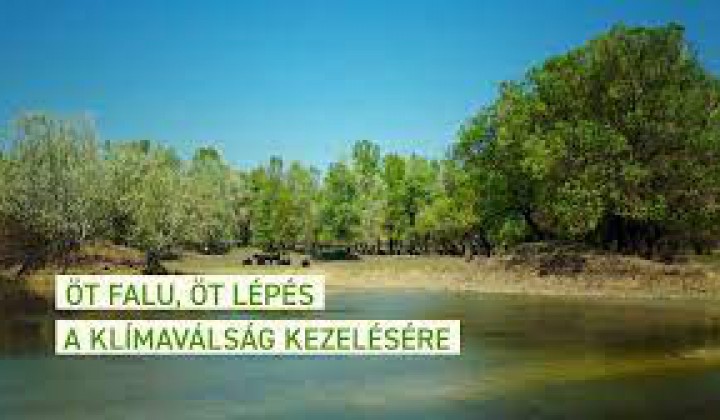
In the framework of our LIFE-MICACC project, we produced a short film entitled Five villages, five steps to tackle the climate crisis.

We will organize field visits to the five pilot sites (Bátya, Püspökszilágy, Ruzsa, Rákócziújfalu, Tiszatarján) for the local authorities in Hungary, so that they can get to know better the natural water retention measures implemented in the LIFE-MICACC project.
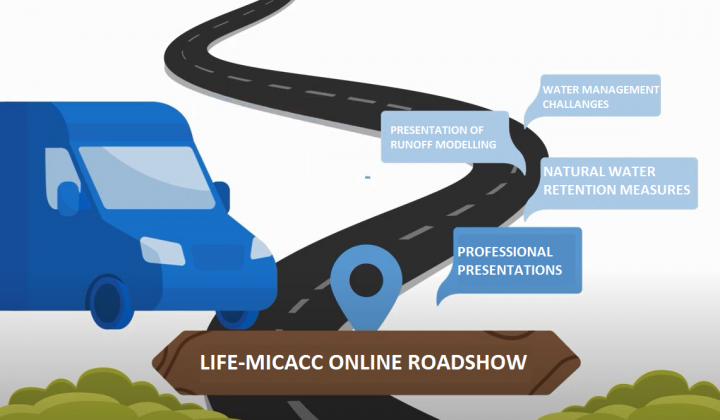
Hungarian municipalities, where innovative natural water retention measures were implemented within the framework of the LIFE-MICACC project, presented themselves to the public through five events of an online roadshow.
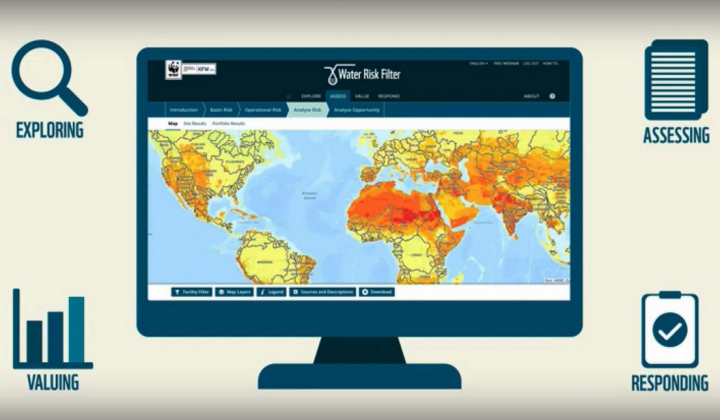
Water is related to many risks that can have a profound impact on the development of a municipality or company. Moreover, these risks are increasing as a result of climate change.
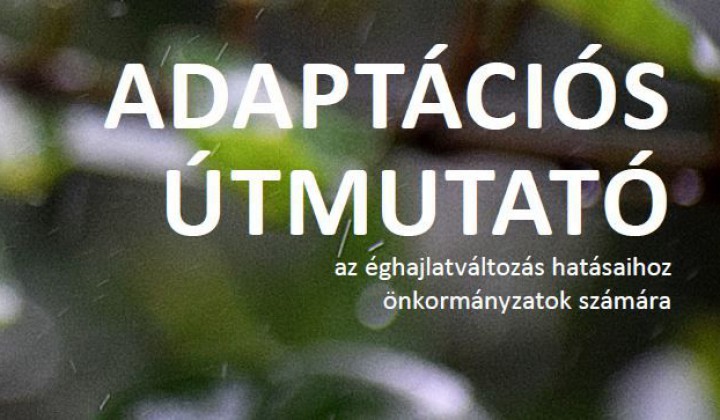
The Adaptation Guide is the latest publication of the project.
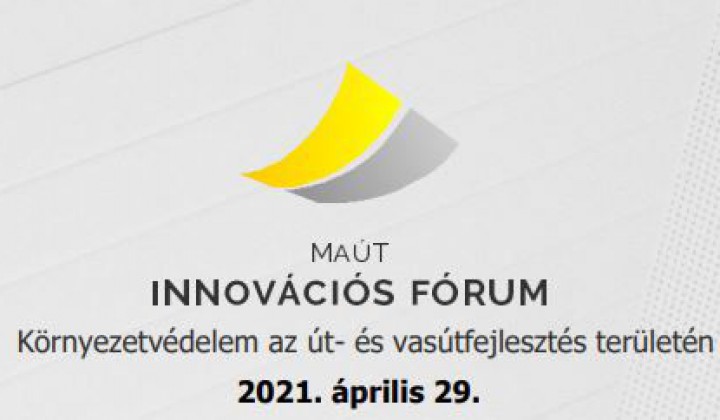
The Hungarian Road and Railway Association organized an online innovation forum on 29 April 2021. This time the topic of the professional platform was environmental protection in the field of road and railway development.
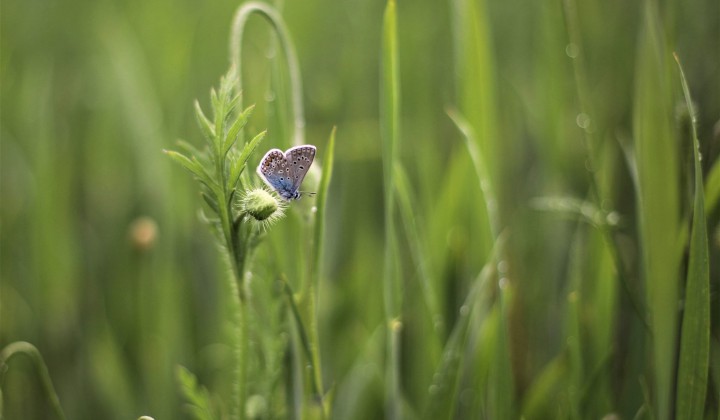
Our climate is changing. We might not be aware of it, but climate change affects us all. For this year’s photo competition, the European Environment Agency (EEA) invites you to capture what it means to live in a changing climate in Europe, to share your take on climate change.
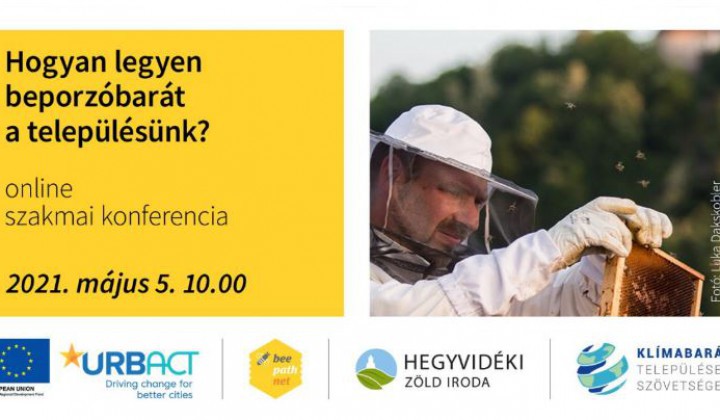
In the framework of the URBACT BeePathNet project, the Association of Climate-Friendly Municipalities together with the Green Office of Hegyvidék Municipality (district XII of Budapest) is organizing a bilingual online professional conference for local authorities on 5 May 2021 on the topic of pollinator-friendly settlements.
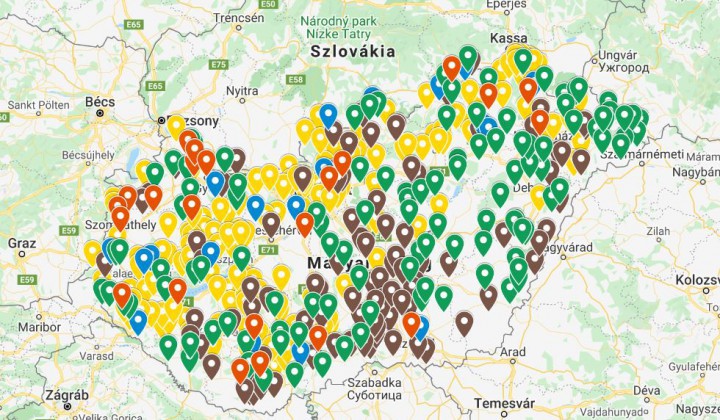
Between 9 February 2021and 31 March 2021, we conducted another online survey on natural water retention measures within the framework of the LIFE-MICACC project.
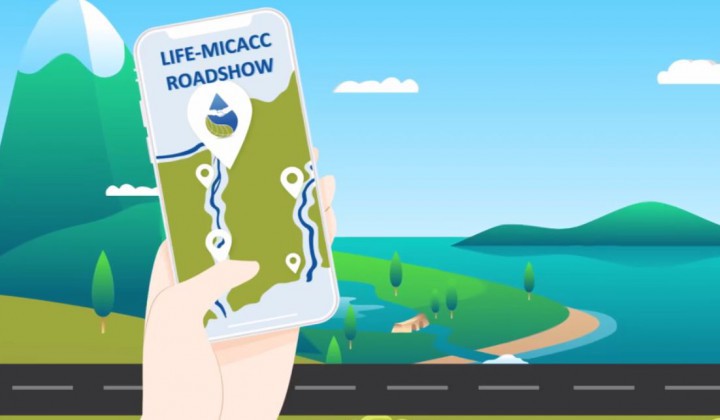
The aim of the online roadshow is to present the achievements of PANNON Pro Innovation Services Ltd. and the partner municipalities in the LIFE-MICACC project, to briefly describe the impact of climate change on municipalities and local farmers, to show alternatives for the use of small-scale natural water retention measures and to promote the application developed for stakeholders.
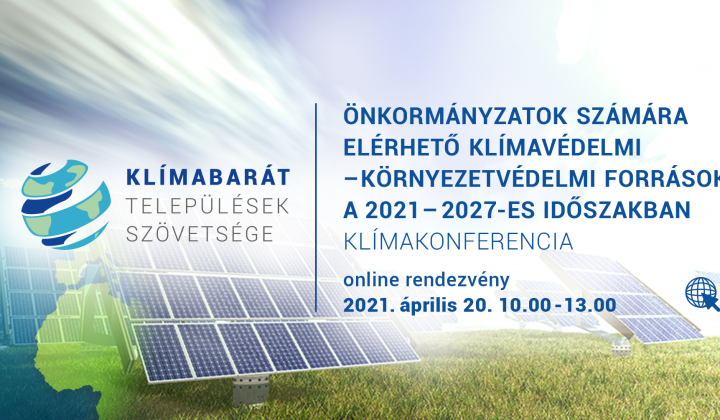
The Association of Climate-Friendly Municipalities is organising a new online conference with the support of the Coordination Office for Municipalities of the Ministry of Interior of Hungary, the National Association of County Municipalities, the National Association of Municipalities and the National Association of Municipalities with County Rights.

In Part 3 of our knowledge-sharing app series, we introduce the interactive features that help you stay up to date with news and events, and provide tools to increase your knowledge about natural water retention measures and climate change.
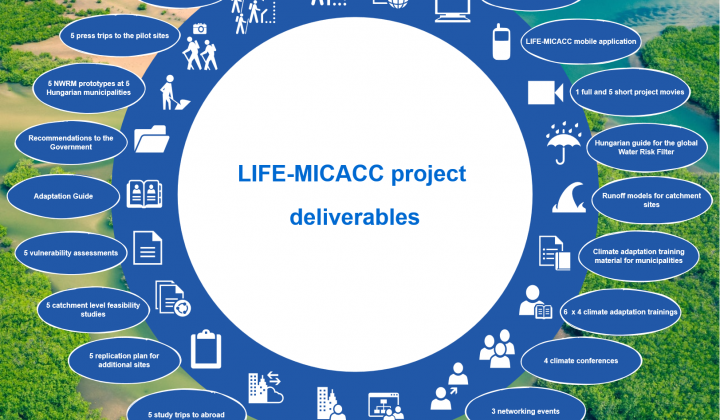
We are pleased to announce the publication of the achieved results of the project so far, summarising the work of the project over the nearly 3,5 years since its launch on 1st September 2017.
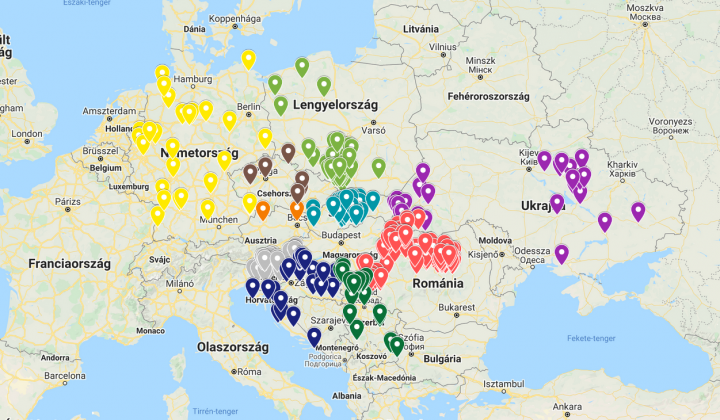
As part of the LIFE-MICACC project, an online survey on natural water retention measures in neighbouring and surrounding countries was carried out between 27th November 2020 and 15th January 2021.

In the second article about our knowledge-sharing application presents one of the main elements: the Menu, where useful information related to natural water retention measures has been collected.

The LIFE-MICACC project hosted a climate conference on 9 February 2021 entitled “The chances of municipalities in the fight against climate change during 2021-2027”. The was organized by the Association of Climate-Friendly Municipalities (AoCFM) and the Coordination Office for Municipalities from the Ministry of Interior with the support of the National Association of County Municipalities and the National Association of Municipalities.
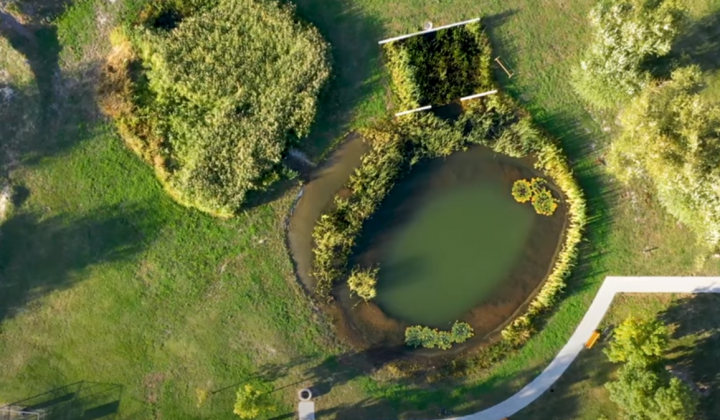
The five prototypes were already completed in five small settlements, based on natural water retention helping them to adapt to climate change in the long term. The five short films made within the project aimed to present these.

Climate change has become one of the most important environmental issues in recent decades, but its effects on human, animal, and plant health, compared to other also important issues, have received little attention so far. Numerous international studies and publications have been prepared to assess the health risks of climate change on a global scale, so it has become increasingly justified to prepare entitled “Climate Change and Health” specifically on the situation in Hungary, summarizing international and domestic scientific results.
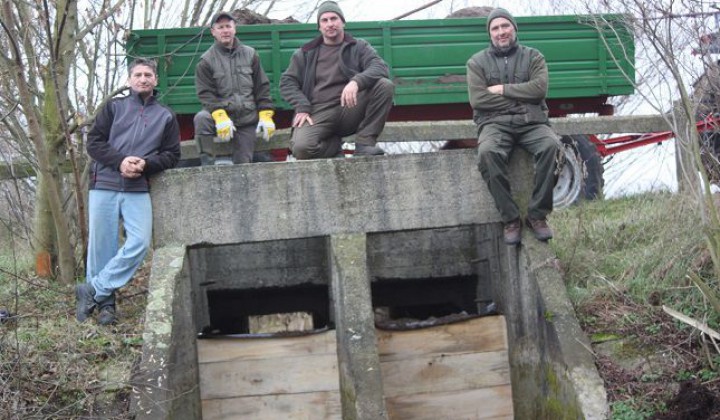
According to forecasts, the impact of climate change in Hungary will be above average, with the prospect of increasingly drier and unpredictable water. However, the complex project of the Dongér-Kelőér Water Association of Jászszentlászló for the retention of groundwater was not triggered by the forecasts, but by the overall concern: the water shortage in Homokhátság is huge.

The DHI Hungary Group will hold a free rainwater management concept course on February 5, 2021. During the theoretical course, participants will review the principles, boundaries, and basic data requirements of the stormwater management concept.

Last year within the framework of the LIFE-MICACC project natural water retention measures were implemented in 5 Hungarian municipalities to help them mitigate the negative effect of the weather extremes caused by climate change.
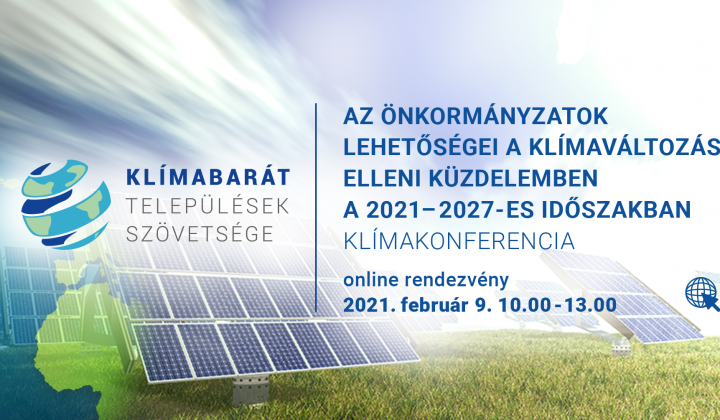
Within the framework of the LIFE-MICACC project, the Association of Climate-Friendly Municipalities and the Ministry of Interior of Hungary are organizing another online climate conference on the 9th February 2021, entitled “The chances of municipalities in the fight against climate change during 2021-2027” supported by the Association of Cities with County Status, the National Association of County Municipalities and the National Association of Municipalities.

The Ministry of Interior has launched a free online training for Hungarian local governments entitled “Municipal Vulnerability and Adaptation to Climate Change”.
We would like to bring your attention to the free e-learning training material developed within the framework of the LIFE-MICACC project coordinated by the Ministry of Interior, which deals with local adaptation to climate change and water retention.
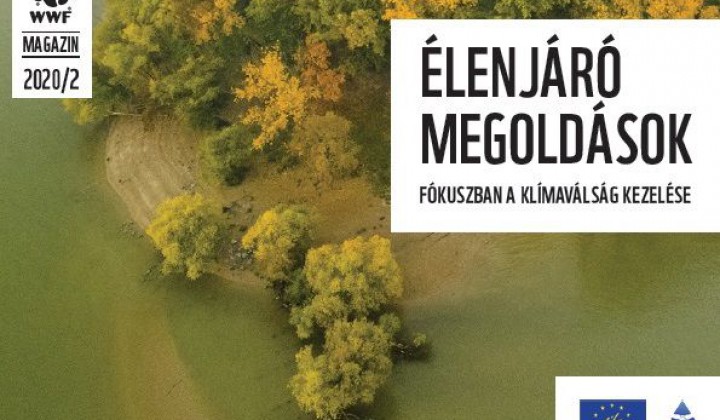
The new WWF Magazine is out now. In this issue they take a closer look at local climate adaptation opportunities from small villages to large cities, presenting the LIFE-MICACC project’s achievements.
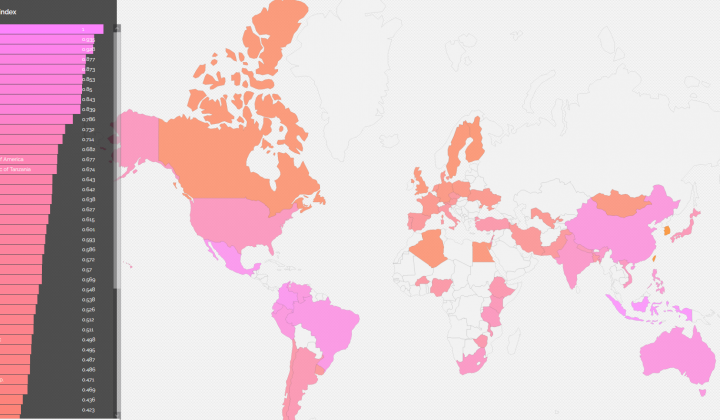
Researchers from Oxford University made almost 300 scientific publications available and searchable on the Nature-based Solutions Initiative’s homepage.
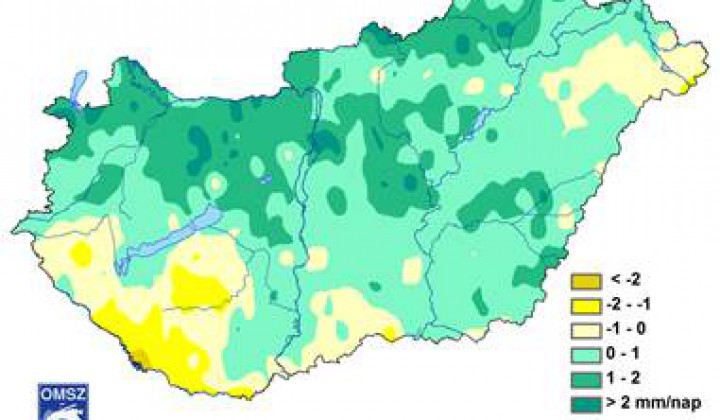
The Hungarian Meteorological Service (OMSZ) has started a new, free service, helping to determine the volume of standard rainfall intensity. The aim of the service coincides with the LIFE-MICACC project’s and can provide important information to municipality which plan to design technical development on its sewage system.

Within the framework of the project, we would like to help the strengthening of relations between Central European municipalities, the cooperation and exchange of experiences in the field of adaptation to climate change. So we prepared a short questionnaire in which we intend to assess the range of people interested in the LIFE-MICACC project. Please help the implementation of our project by filling the survey! It takes about 10 minutes to complete.
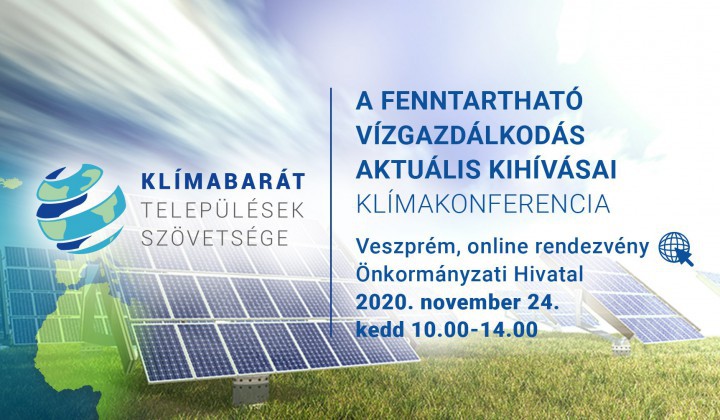
Within the framework of the LIFE-MICACC project, the “Actual Challenges of Sustainable Municipal Water Management” online climate conference was organized with the help of the Association of Climate-Friendly Municipalities, the Municipality of Veszprém County, the Coordination Office for Municipalities (Ministry of Interior) and the Pannon Pro Innovations Ltd., held on the 24th November 2020.
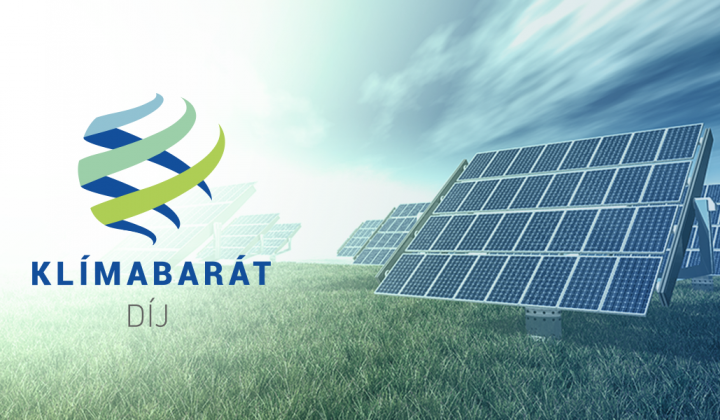
This year the Association of Climate-Friendly Municipalities created an award which will be handed out every year from now on. Because of the number and quality of applications, the Judging Committee created four categories and selected a winner for each one.

In 2020, the awarded municipality was the Municipality of Püspökszilágy, one of the LIFE-MICACC project partners.
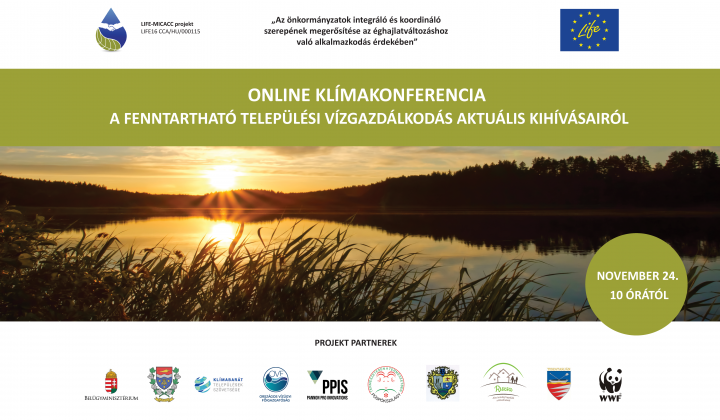
Another climate conference is being organised within the framework of LIFE-MICACC project by the Association of Climate-Friendly Municipalities, but this time – because of the pandemic – online.

The last press trip within the framework of the LIFE-MICACC project took place at Ruzsa, on 13th October 2020.
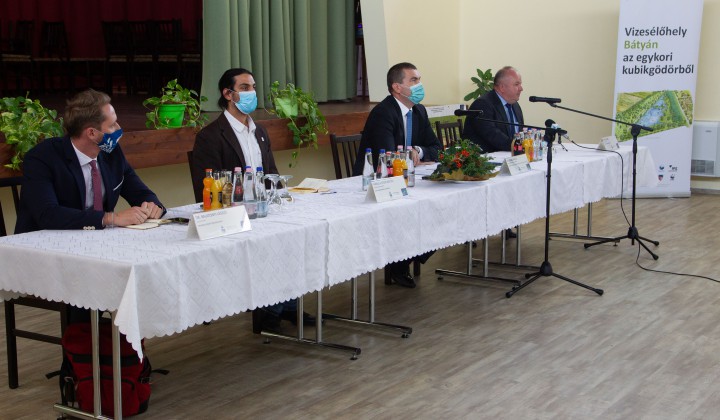
The fourth press trip took place in Bátya on 8th October 2020.
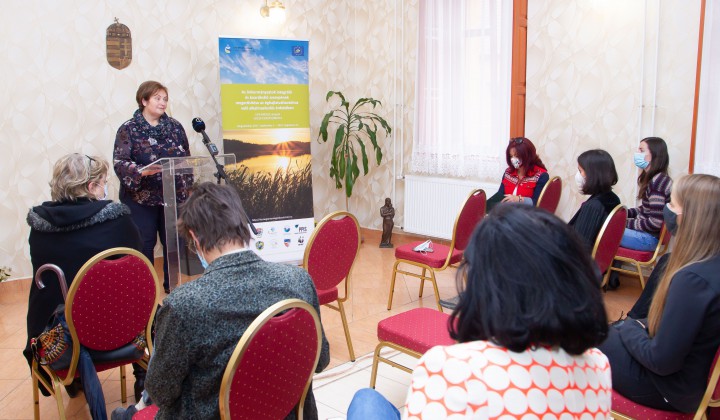
The next press trip took place in Tiszatarján, on 28th September 2020. Lajosné Bögre, Mayor of Tiszatarján welcomed all the participants, especially the press staff, and gave a speech about the hard work the municipality put into creating the amazing lake system.
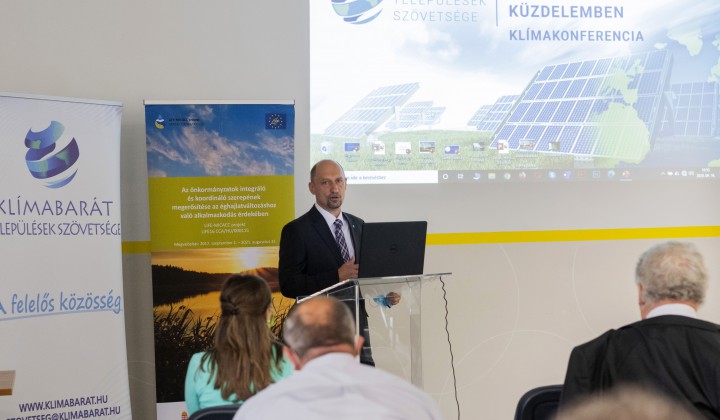
On the 16th September 2020, within the framework of the LIFE-MICACC project, a conference called “Municipalities in the fight against climate change” was held at Székesfehérvár.
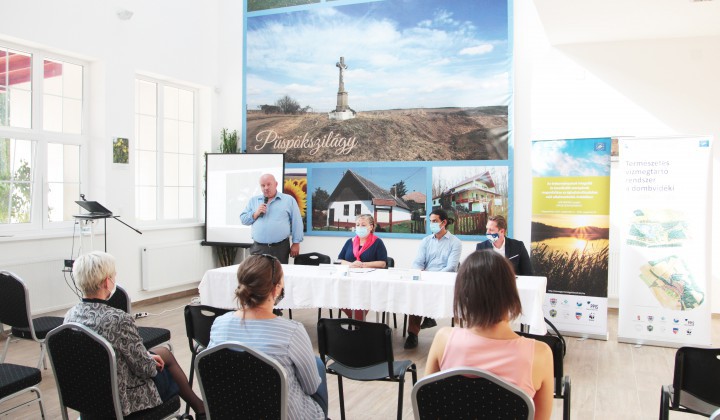
The second press trip within the framework of the LIFE-MICACC project took place in Püspökszilágy, on the 17th September 2020.
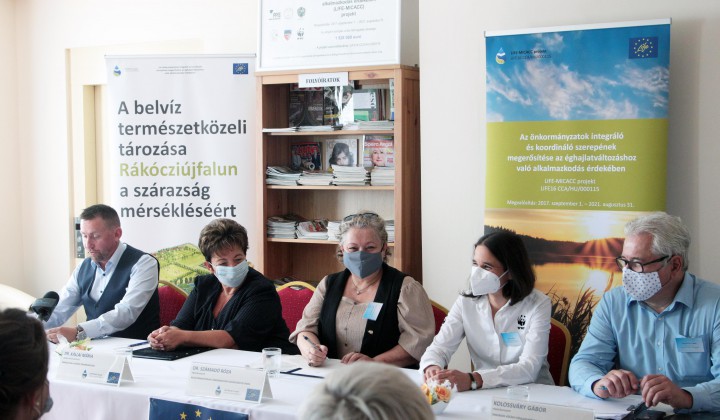
On the 8th September 2020 a press conference and a field trip for the media was organized, showing the finalized pilot site at Rákócziújfalu.
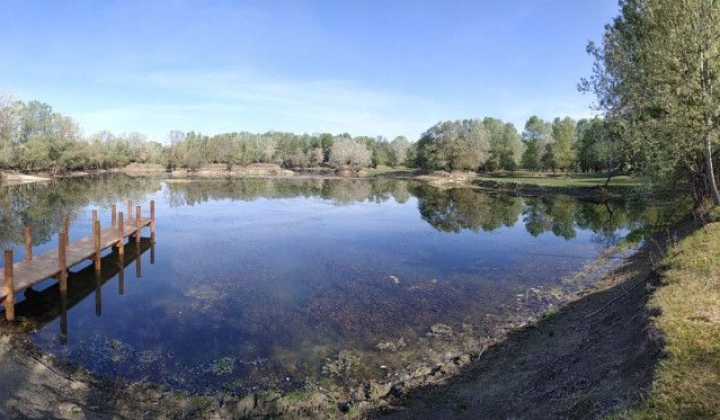
Droughts, floods and heatwaves – extreme hydrological events caused by climate change affect people living both in cities and in the countryside. According to forecasts, these extreme weather events are going to become more frequent, and will severely affect Hungarian communities. However, cost-efficient and environmentally-friendly solutions exist that can help protect against the effects of climate change.
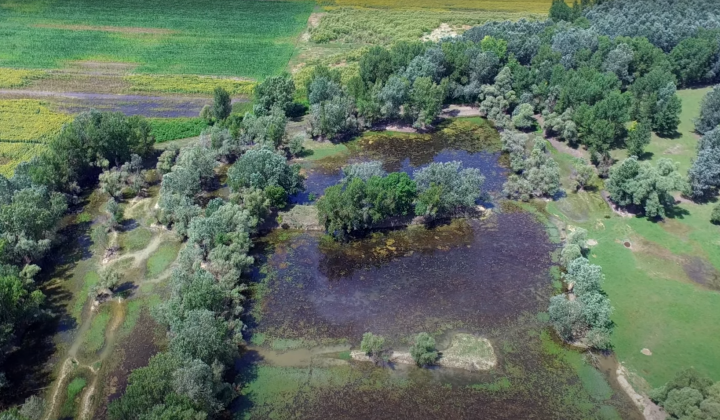
The following short film was made on 15 July 2020, about the intervention area of the LIFE-MICACC project and the surrounding wildlife. The drone images show the habitat of the gray cattle and water buffaloes, the floodplain lake system and the surrounding agricultural areas from a special and unique perspective.
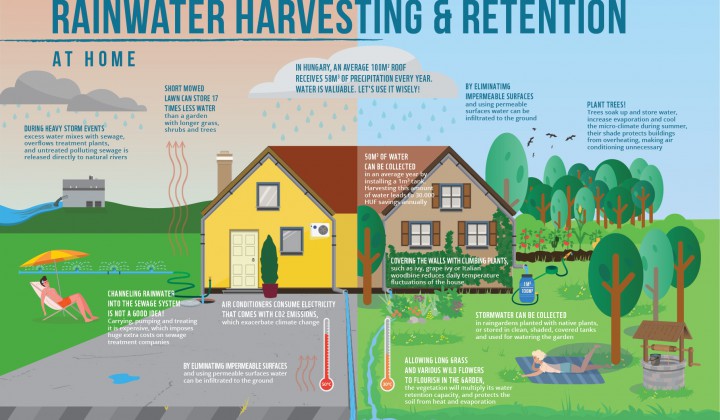
By not draining the falling rain, but keeping it in our home, we not only do good for our wallets, but we can also effectively protect against heat and drought. In addition, we can do a lot to preserve the natural treasure which is the basis of all life. WWF Hungary gives tips on how to keep water around our house.
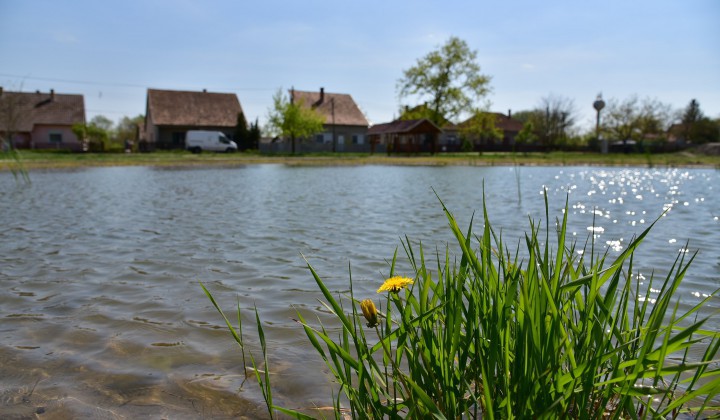
Ruzsa is located on the sand ridge between the Danube and the Tisza, which is the driest area in the country. The area is often referred to only as the Hungarian desert, which has been named because it has been struggling with water scarcity for decades and is in danger of total desertification.
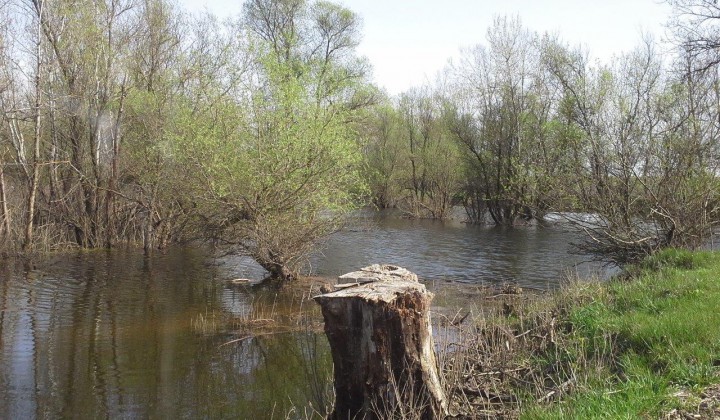
Tiszatarján is located in Borsod-Abaúj-Zemplén county, in Mezőcsát province. The settlement is located on the banks of the Tisza, a quarter of its territory belongs to the floodplain of said river. The floodplain is extremely vulnerable to unpredictable, severe floods, persistent and increasingly frequent droughts and inland water
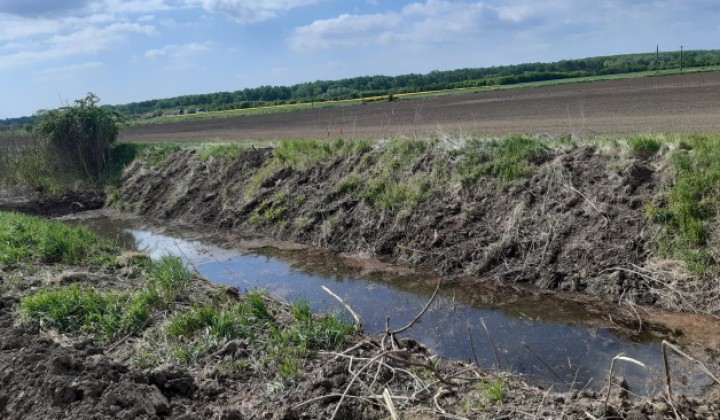
Rákócziújfalu, located in the middle section of the Tisza river basin, is extremely exposed to inland floods ant the growing water shortage, which is further accelerated by the intensive agriculture in the area.
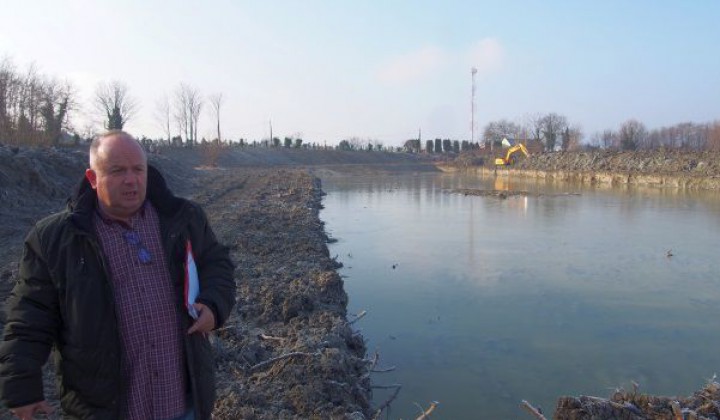
Bátya is a perfect prototype for local communities, showing how multi –basin wetlands can be used to deal with various water-related climatic events (in this case, drought and extreme rainfall).
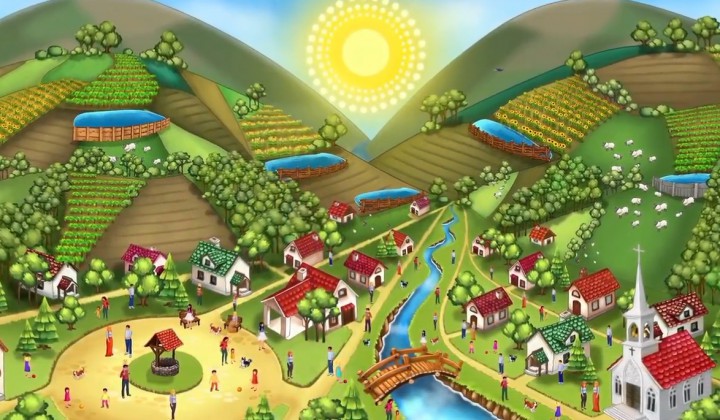
Two short animated films have been made, which illustrates the natural water retention measures (NWRM) implemented within the framework of the LIFE-MICACC project for a lowland and a highland settlement.
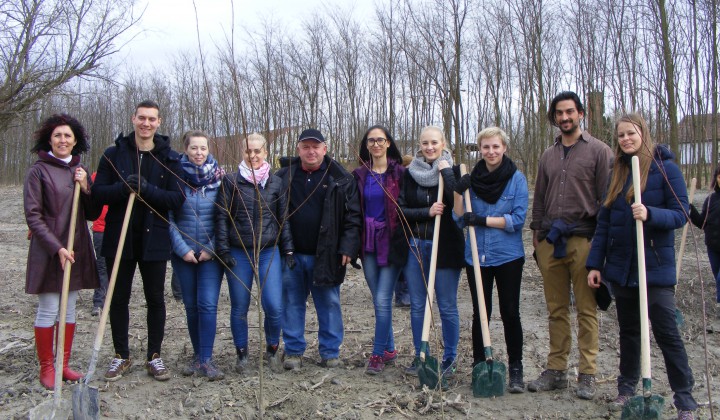
On Marc 11, 2020 the Municipality of Bátya organized a tree planting event, during which nearly 700 saplings were planted at the pilot site.
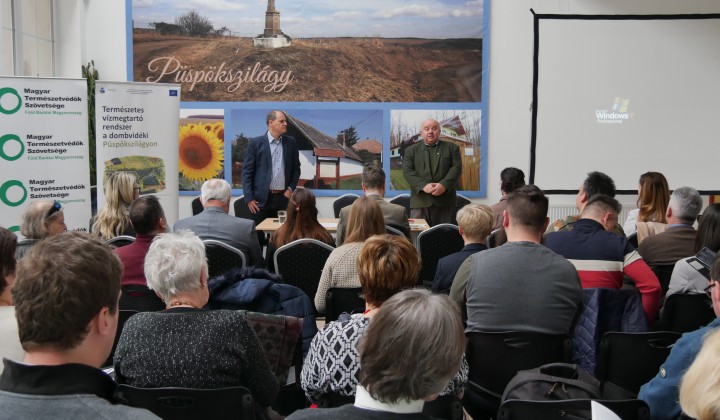
The forum, “To promote local adaptation to climate change”, was organized by the National Society of Conservationists, the Municipality of Püspökszilágy and the WWF - World Wide Fund for Nature Hungary Foundation, on 4 March 2020, Püspökszilágy.
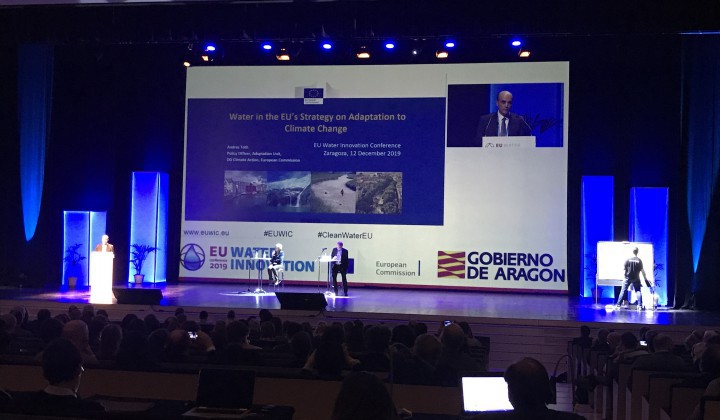
This year’s EU Water Innovation Conference (EUWIC 2019) was held in Zaragoza (Spain), between the 11th and 13th December, 2019. The conference’s main topic was the effective management of water pollution and preparation for water-related climate change in the European Union.
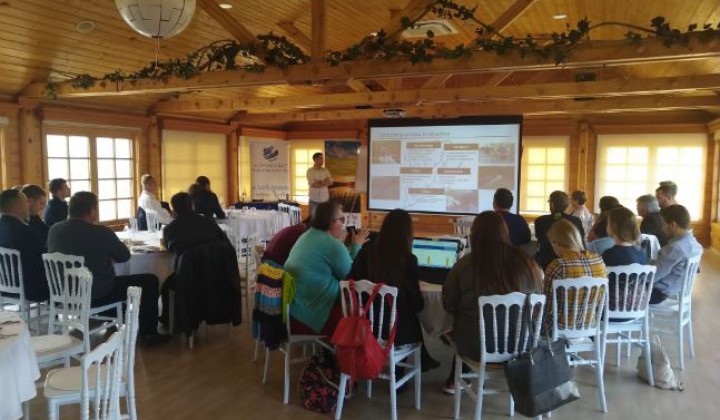
Within the framework of the LIFE-MICACC project the second two days of the III. Climate Adaptation Training were organized, this time in Budapest, for the leaders and colleagues of interested municipalities involved from the river basin of the five partner municipalities.
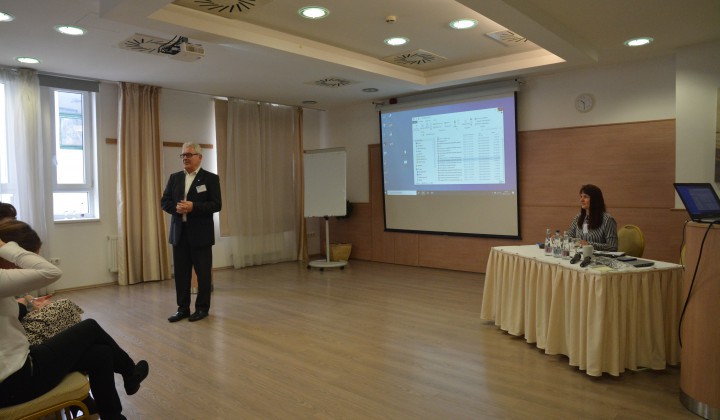
From November 19th 2019 the “National Municipal Water Management and Water Utility Conference“ was held in Győr by the General Directorate of Water Management.
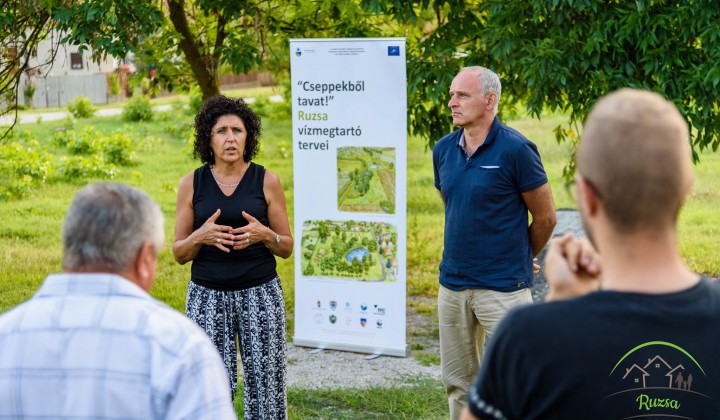
We are nearly at the end of the investment of a cleaned drinking water’s decanted water artificial reservoir in the Dózsa park, downtown Ruzsa.
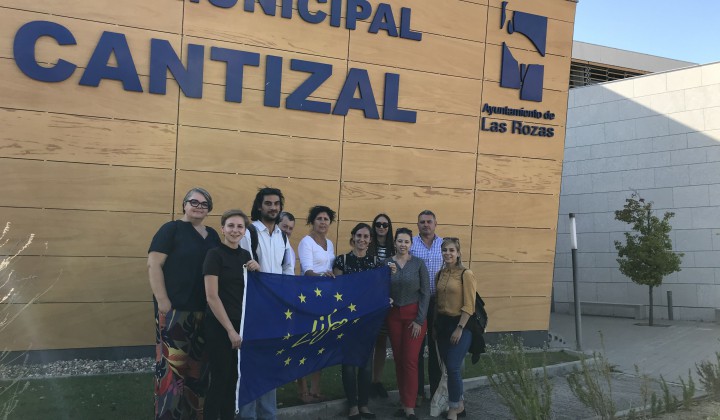
The 3rd networking visit within the framework of the LIFE-MICACC project took place in Madrid, Spain between 8th and 10th October 2019. The aim of the visited LIFE SHARA project is to increase the adaptation and resilience of society to climate change on the Iberian Peninsula.
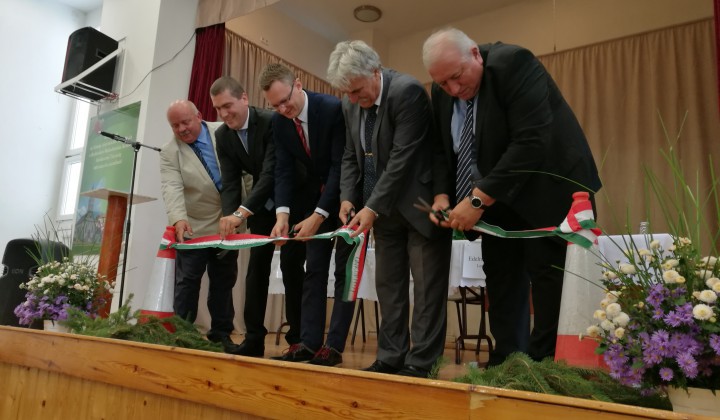
Within the framework of the LIFE-MICACC project, the first complete pilot project was presented on 5 October 2019, in Püspökszilágy.

The General Assembly of Pest County held it’s 8th climate change platform’s meeting. At the event several national experts drew attention to the importance of climate change and rainwater management.
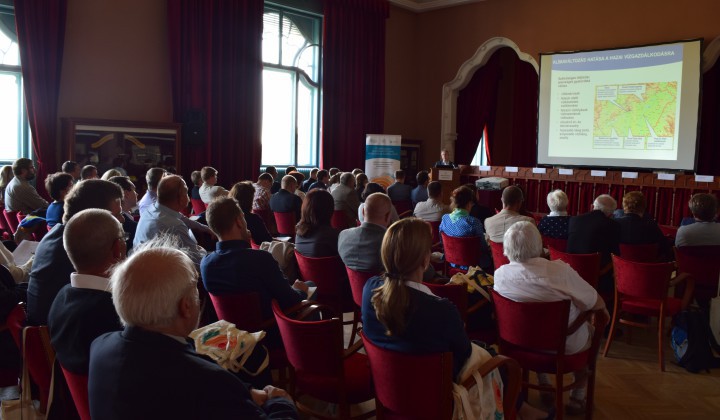
Within the framework of the Mining and Geological Survey of Hungary’s (MBFSZ) KEHOP-1.1.0-15-2016-00007 project, entitled “Further development of the National Adaptation Geo-information System (NAGiS)”, on 19th September 2019 the ”Climate Leadership Academy” was held in Budapest.
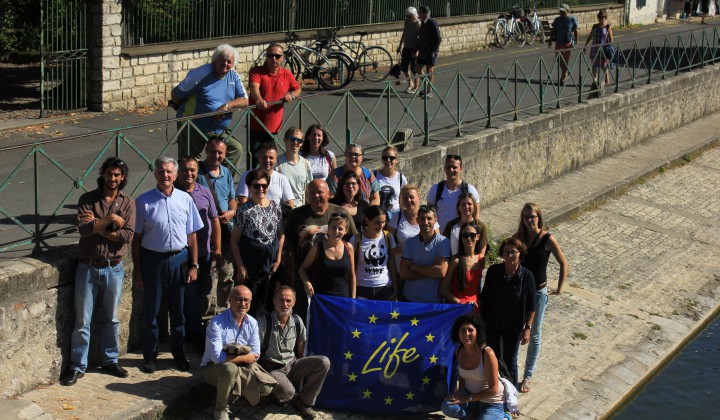
Within the framework of the “Municipalities as integrators and coordinators in adaptation to climate change”, LIFE16 CCA/HU/000115 (hereinafter referred to as “LIFE-MICACC”) project, the fifth study trip took place between the 16th and 18th September 2019, in the Marais-Poitevin Regional National Park, France.
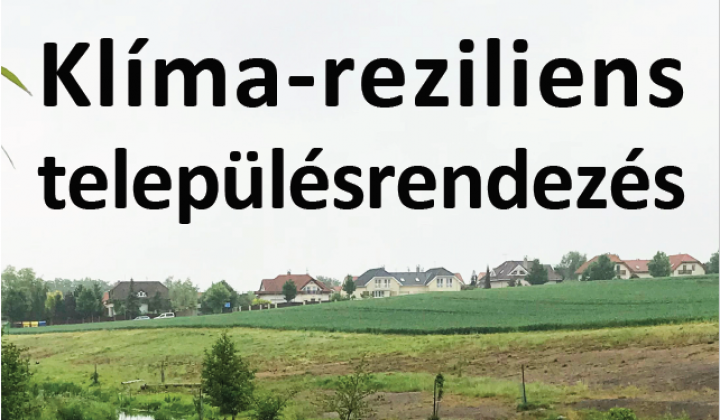
We are pleased to inform you that three of the 4 project publications on climate change adaptation and water management have already been prepared and now are available on the website.
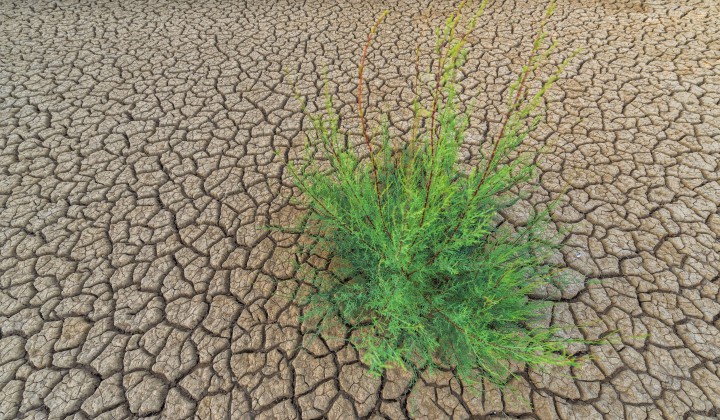
Hungary is a water superpower! – many people say. However, this statement is only partially true. Why? This is illustrated in the figure below. We obtain water from three different sources in Hungary: rainfall, groundwater resources and rivers. Let’s look at these three sources of water separately.
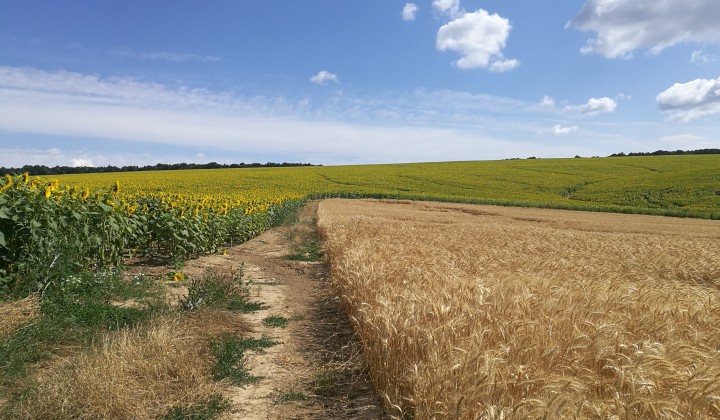
On July 11, 2019, we visited Püspökszilágy together with the General Directorate of Water Management (GDWM), the World Wide Fund for Nature Hungary Foundation (WWF) and the Ministry of Interior (MoI).
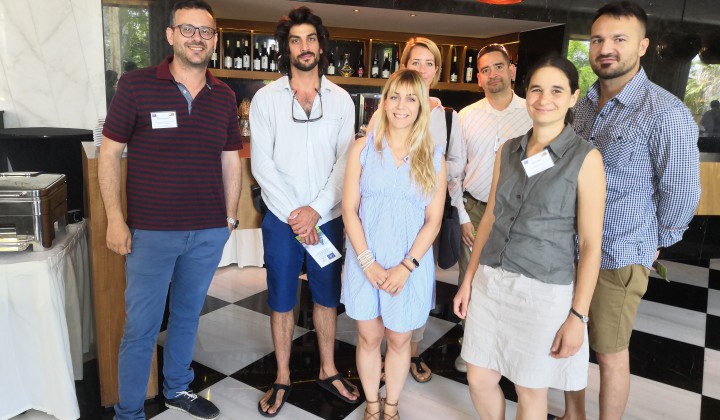
At the end of June 2019, the LIFE-MICACC project travelled to Crete to attend an international conference on adaptation to climate change organized by the LIFE project.
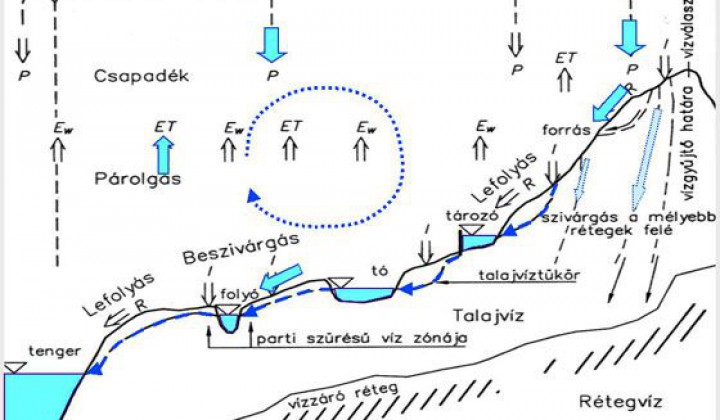
One of the undertaken commitments of the LIFE-MICACC project is to conduct runoff modelling in pilot sites at the five municipal partners to provide decision makers with accurate input data on adaptation options (for example natural water retention measures) using specific geographic data.
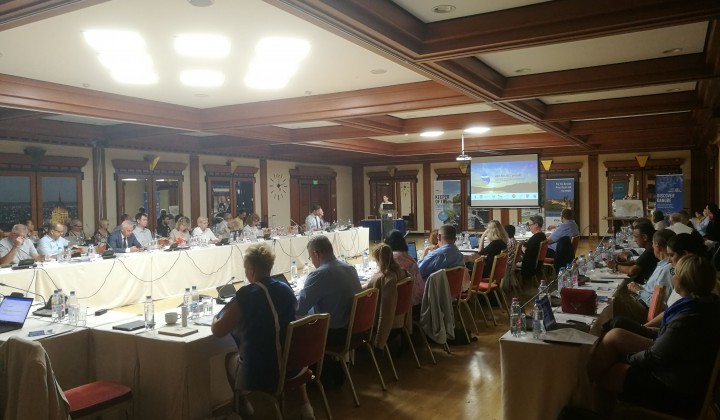
On 26-27 June 2019, the annual meeting of the International Commission for the Protection of the Danube River (ICPDR) was organized by the Ministry of Interior in Budapest.
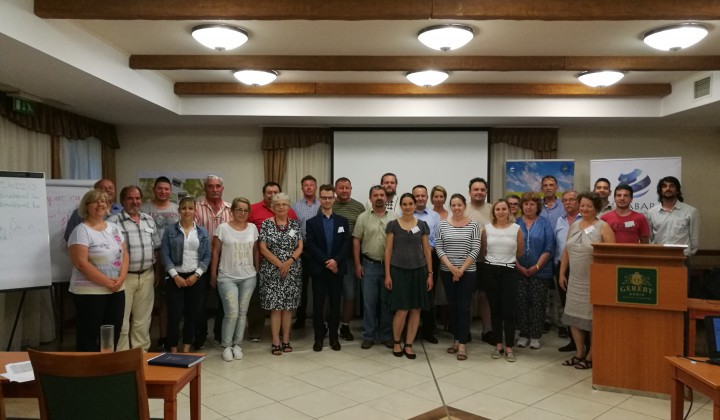
For the third time, on 18-19 June 2019, Climate Adaptation Training was held within the framework of the LIFE-MICACC project entitled “Municipalities as integrators and coordinators in adaptation to climate change”, this time in Lajosmizse, for the leaders and staff of interested municipalities involved in the catchment area of the five partner municipalities involved in the project.
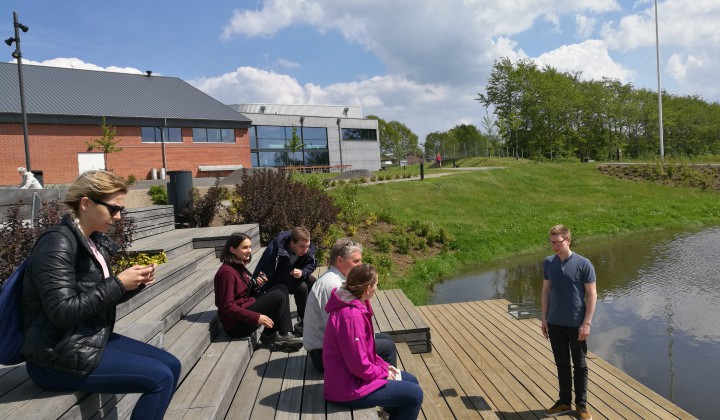
The participants visited a traditional and an integrated Life project to build relationships, to exchange knowledge and experience, and learn about local Danish solutions to adapt to climate change.

The tender called KEHOP-1.2.1, entitled “Developing local climate strategies and shaping attitudes to strengthen climate awareness” was published with a budget of HUF 3.19 billion.
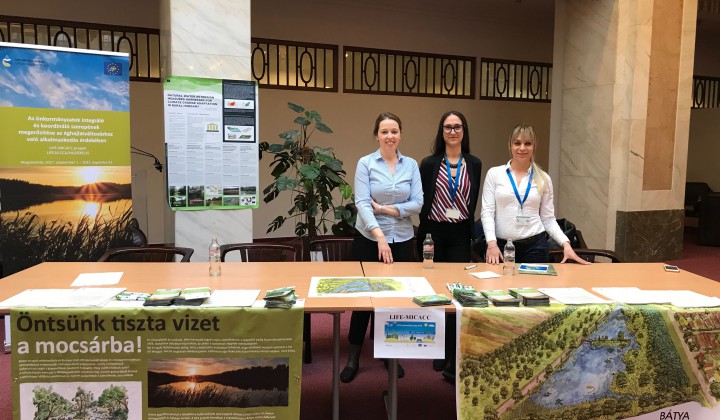
The Ministry of Agriculture, in cooperation with the Ministry of Innovation and Technology, organized the LIFE Information Day 2019 and the first LIFE Exhibition on April 16, 2019, where to our LIFE-MICACC project also was invited to participate as a presenter and exhibitor.
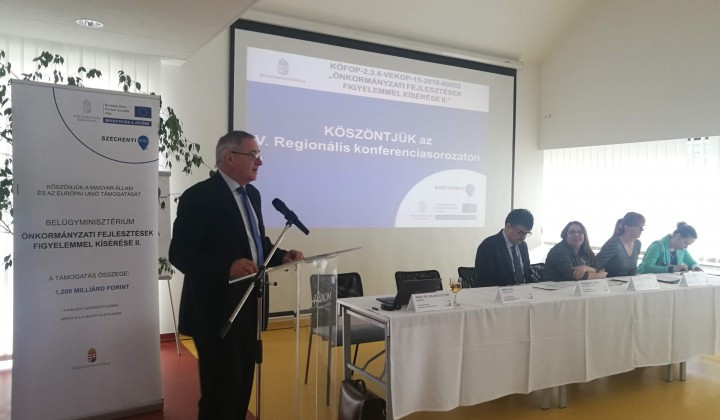
The V. Regional Conference on the “Municipal Development Monitoring II.” project was held between 26 March and 11 April 2019.
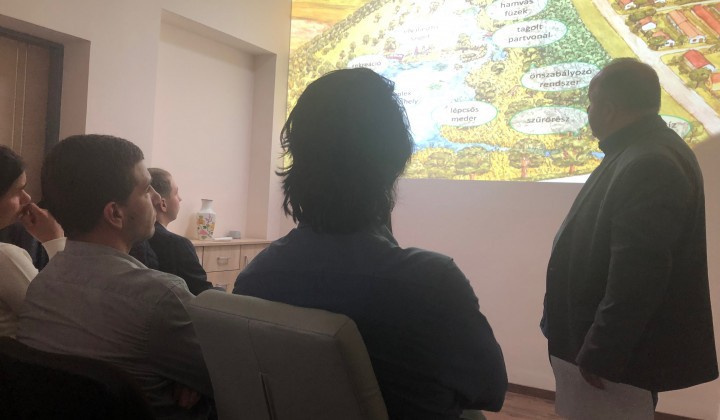
Water respects no administrative boundaries. Cross-border local cooperation is needed to solve many water-related problems, therefore our five municipalities started to contact the leaders of neighbouring municipalities.
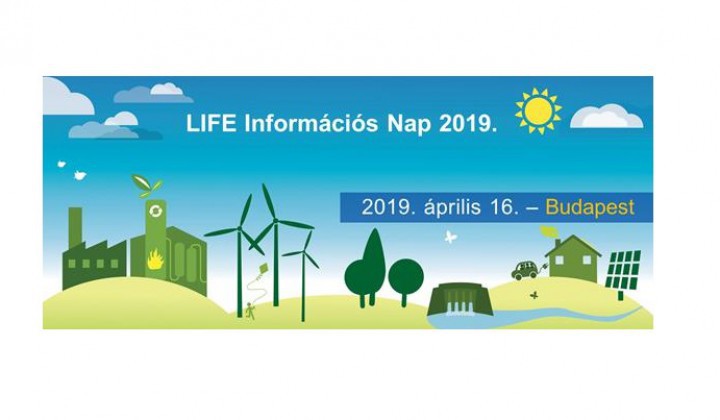
The Ministry of Agriculture, in cooperation with the Ministry of Innovation and Technology, organizes the LIFE Information Day 2019 and the first LIFE Exhibition on April 16, 2019, where to our LIFE-MICACC project has been invited as a presenter and exhibitor.
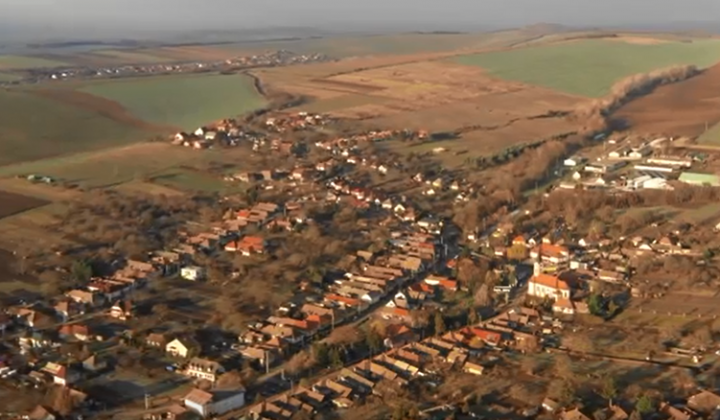
In the frame of the project we introduce the whole pilot process from designing the NWRMs to the physical implementation by shooting short videos on the pilot sites. In winter 2018 we started to prepare these video films and according to our plans we finalize them by summer 2020.
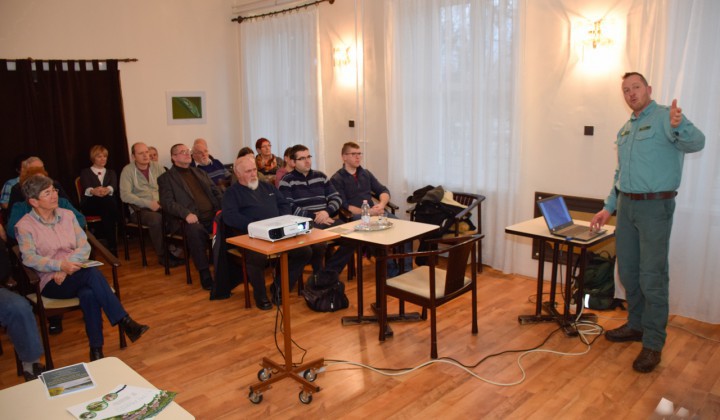
In the framework of the LIFE-MICACC project, the Association of Climate-Friendly Municipalities organizes a number of events to raise awareness of climate change and protect our waters.
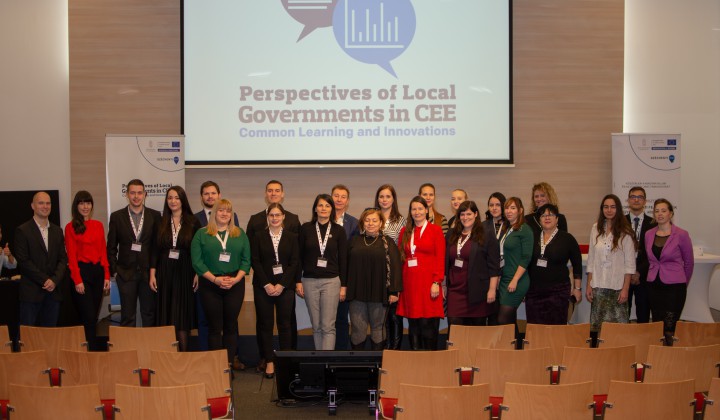
We invite you to participate on the second international conference on „Perspectives of Local Governments in Central Europe – Practice and Innovations” within the framework of „Municipal Development Monitoring II.
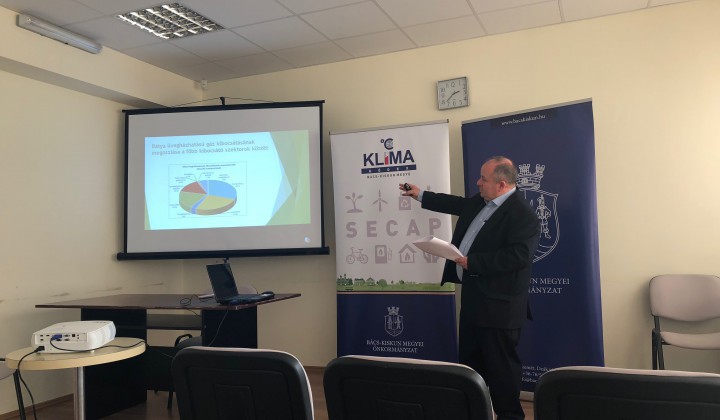
The Municipality of Bács-Kiskun County launched a series of events entitled “Sustainable Energy and Climate Action Plan – SECAP”, which was also invited by the Municipality of Bátya to present the completed SECAP plan to the other municipalities in the county.
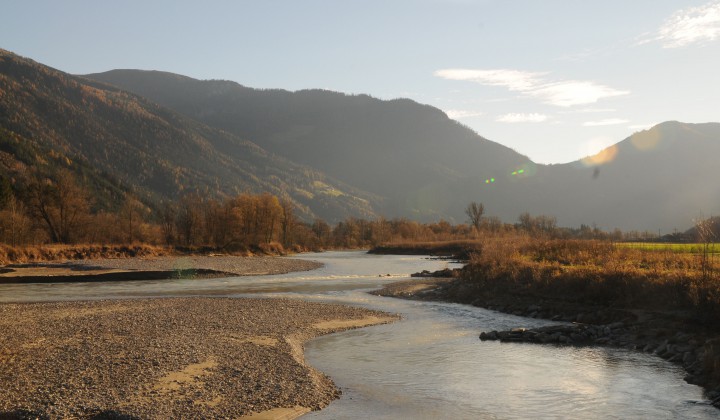
In addition to the LIFE-MICACC project, WWF Hungary carries out a number of other national and international projects to protect the environment, to mitigate the effects of climate change and to preserve species diversity.
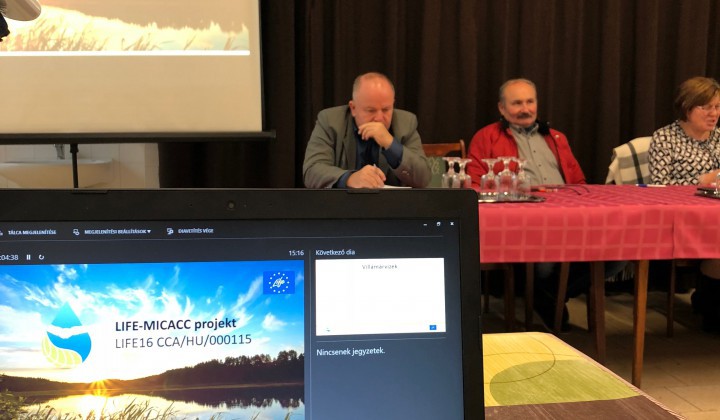
Last Saturday, the annual public hearing was held in Bátya, where among other things the plans of the pilot project in the settlement were presented to those who were interested.
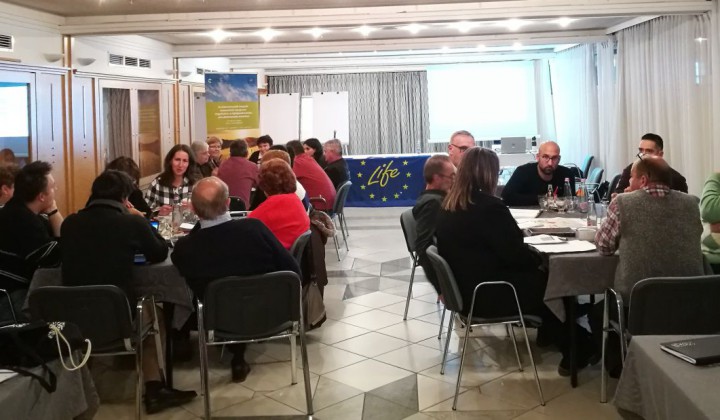
In the frame of the LIFE-MICACC project, the next training event took place on 29- 30th November 2018 in Kecskemét. The second part of the four-days training was held to the external cooperating partner municipalities who presented their vulnerability assessments and adaptation ideas. The representatives of the participant municipalities also had the opportunity to consult with the invited experts in different fields.
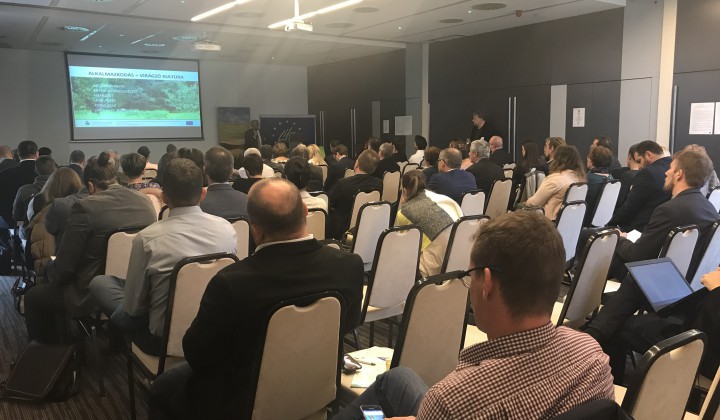
On 20 and 22 November 2018, a conference entitled “Municipalities’ Possibilities in Water Related Fields of Climate Adaptation” was held in the framework of the LIFE-MICACC project, hosted by the towns of Szolnok and Székesfehérvár.
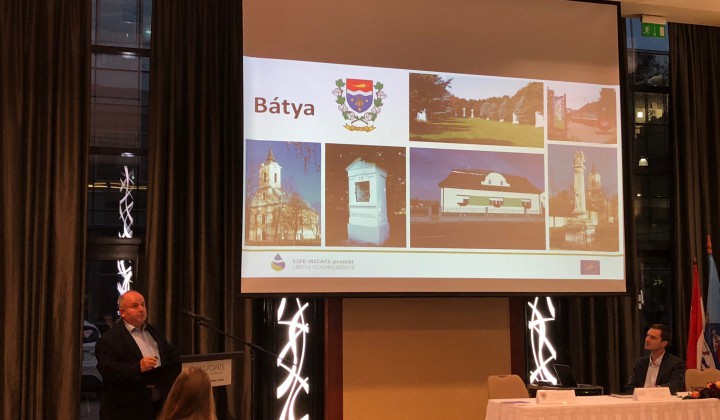
The Bács-Kiskun County Municipality organized the Bács-Kiskun County Mayors' Professional Forum for the eighth time in this election cycle, which was hosted by the Four Points by Sheraton Kecskemét Hotel & Conference Centre on 9-10 November 2018.
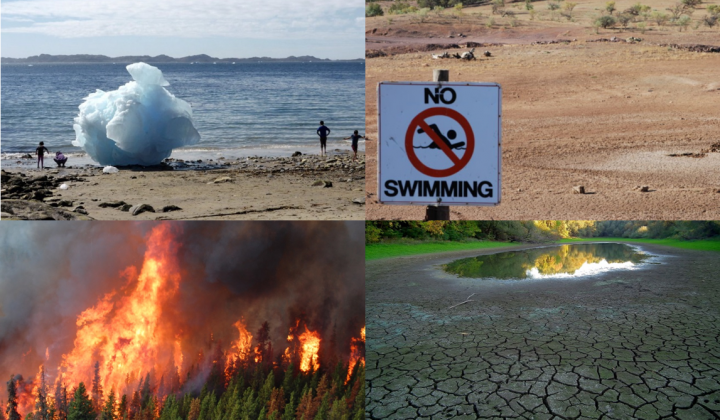
For a municipality to become the motor of climate change adaptation, integrating and coordinating the local knowledge and skills, they first have to discover the settlement’s resources regarding society and natural environment, their plans and ambitions, the municipality’s vulnerability and exposure to climate change, and of course their ability to adaptation.
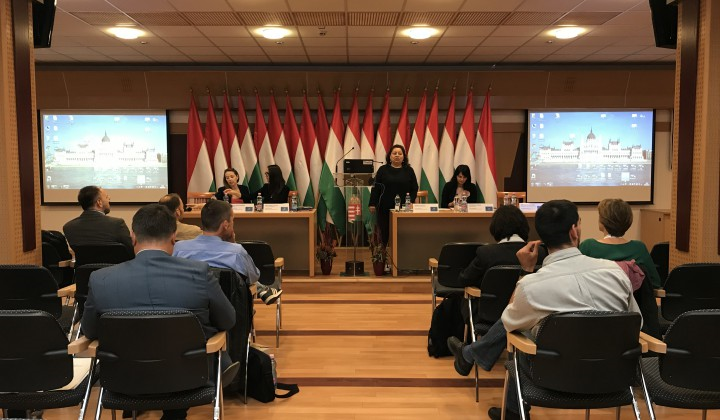
The Coordination Office for Municipalities organizes two conferences for local municipalites in West-Hungary and East-Hungary in November 2018.
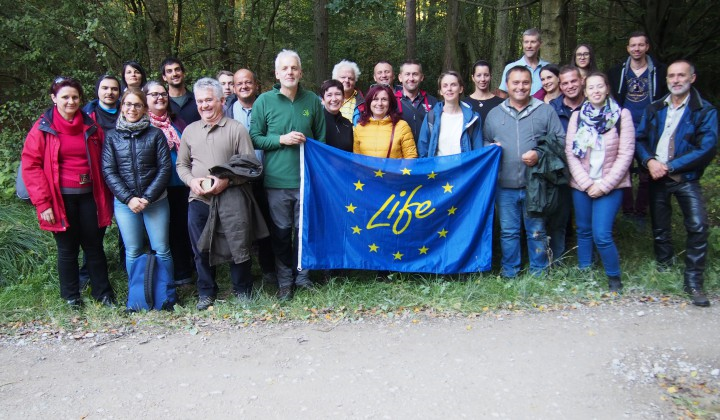
Between 25th and 28th September 2018 the LIFE-MICACC team traveled to the United Kingdom (to the villages of Belford and Pickering) as their second and third study trip. 16 municipalities from Hungary were represented on the trip.
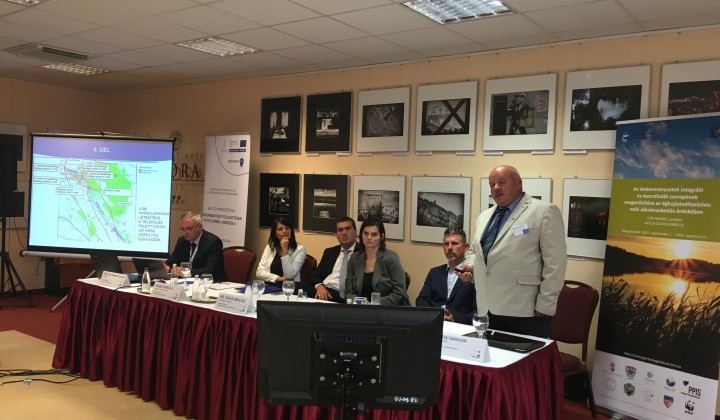
Between 4th and 20th September, 2018 the Ministry of Interior’s Coordination Office for Municipalities held a roadshow of six events within the framework of a project, called - Municipal Development Monitoring II.
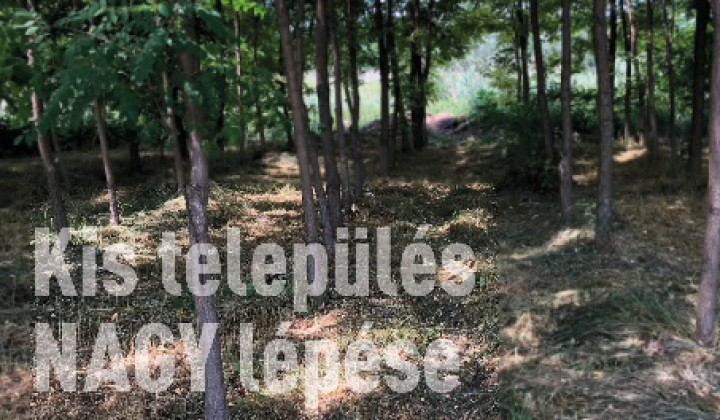
The associates of Bács-Kiskun County’s Climate Program visited Bátya to get acquainted with the local implementation of the LIFE-MICACC project.
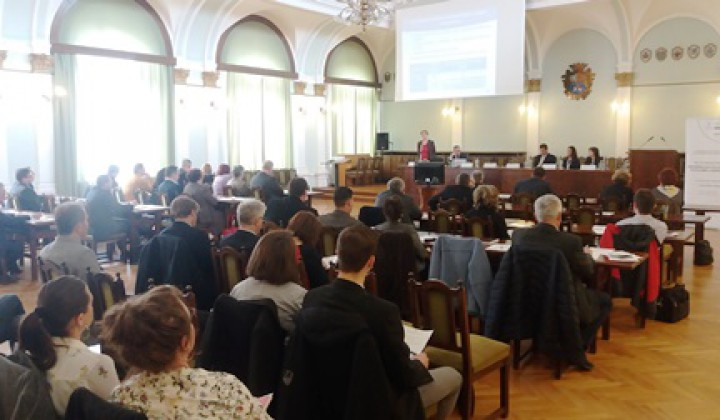
Between the 4th and 20th of September 2018, the MoI’s Coordination Office for Municipalities is holding a conference series in six different regions of Hungary. The aim of the conference is to present the relevant current projects of the MoI and research results of the “Municipal Development Monitoring II.” project for the local governments and their delegates of each region.
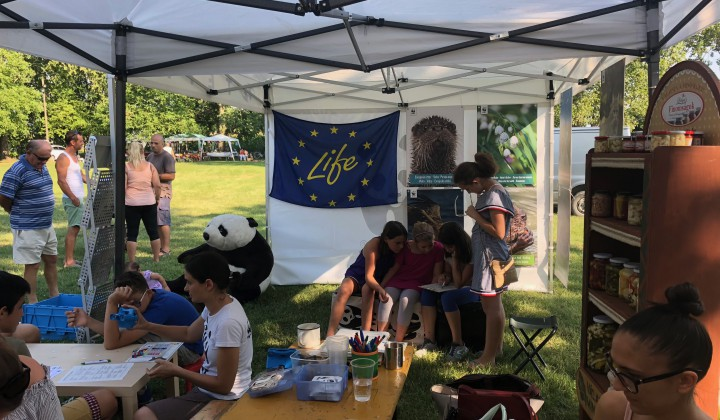
The high temperature measured on Saturday this summer made an effect on all programs of Bátya’s 10th Festival of Garlic and Village Day, where the LIFE-MICACC project’s team also participated.
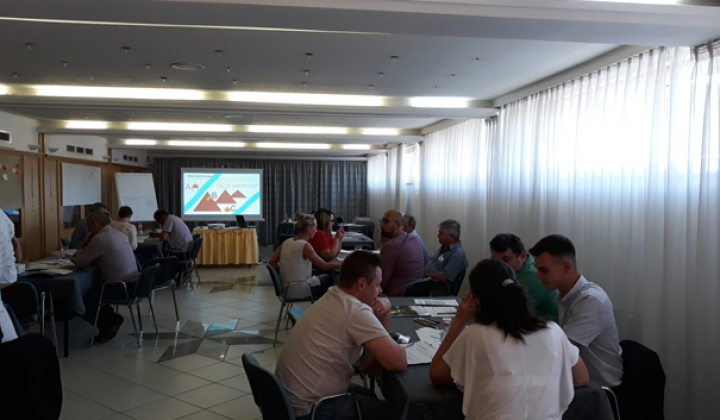
Another successful training event was organised in the LIFE-MICACC project. The first two days of the second climate adaptation training was held at 3-4 July 2018 in the city of Kecskemét. The workshop-type training aimed to prepare staff members involved in the project as an external co-operative partner for local vulnerability assessments.
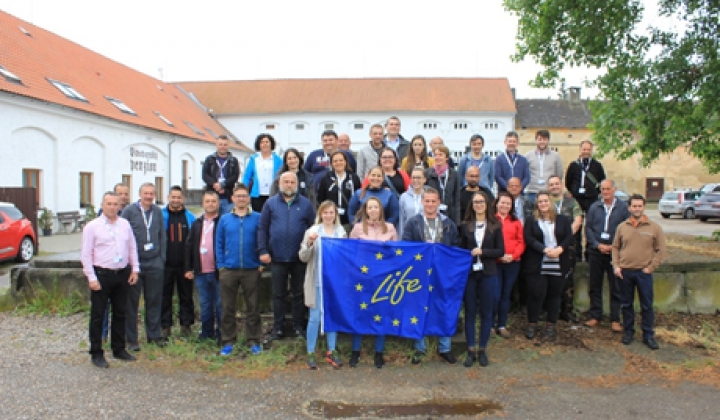
LIFE-MICACC study trip to the Czech Republic
On the first foreign study trip 15-16th May 2018 the LIFE-MICACC team with all the project partner organizations visited the Czech Republic (Municipalities of Šardice, Hostivice and Nenačovice).

The “Municipalities as integrators and coordinators in adaptation to climate change” LIFE16 CCA/HU/000115 (LIFE_MICACC) project has begun at 1st of September 2017 with the leadership of the Ministry of Interior of Hungary and with the participation of nine Partners.